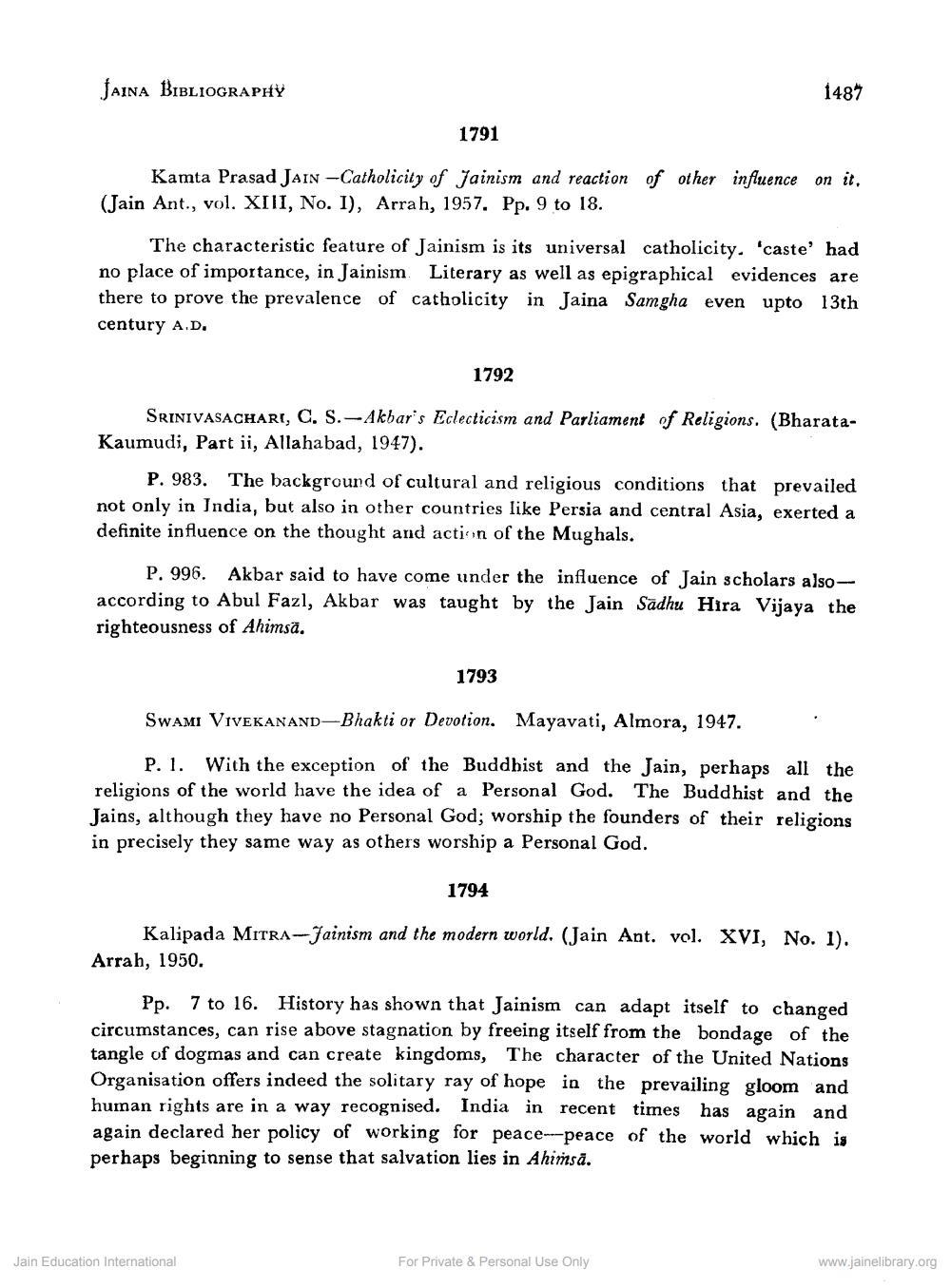________________
JAINA BIBLIOGRAPHY
1791
Kamta Prasad JAIN-Catholicity of Jainism and reaction of other influence on it. (Jain Ant., vol. XIII, No. I), Arrah, 1957. Pp. 9 to 18.
The characteristic feature of Jainism is its universal catholicity. 'caste' had no place of importance, in Jainism Literary as well as epigraphical evidences are there to prove the prevalence of catholicity in Jaina Samgha even century A.D.
1792
1487
SRINIVASACHARI, C. S.-Akbar's Eclecticism and Parliament of Religions. (BharataKaumudi, Part ii, Allahabad, 1947).
The background of cultural and religious conditions that prevailed not only in India, but also in other countries like Persia and central Asia, exerted a definite influence on the thought and action of the Mughals.
P. 996. Akbar said to have come under the influence of Jain scholars alsoaccording to Abul Fazl, Akbar was taught by the Jain Sadhu Hira Vijaya the righteousness of Ahimsa,
1793
SWAMI VIVEKANAND-Bhakti or Devotion. Mayavati, Almora, 1947.
With the exception of the Buddhist and the Jain, perhaps all the religions of the world have the idea of a Personal God. The Buddhist and the Jains, although they have no Personal God; worship the founders of their religions in precisely they same way as others worship a Personal God.
Jain Education International
1794
Kalipada MITRA-Jainism and the modern world. (Jain Ant. vol. XVI, No. 1). Arrah, 1950.
Pp. 7 to 16. History has shown that Jainism can adapt itself to changed circumstances, can rise above stagnation by freeing itself from the bondage of the tangle of dogmas and can create kingdoms, The character of the United Nations Organisation offers indeed the solitary ray of hope in the prevailing gloom and human rights are in a way recognised. India in recent times has again and again declared her policy of working for peace-peace of the world which is perhaps beginning to sense that salvation lies in Ahimsa.
For Private & Personal Use Only
www.jainelibrary.org




